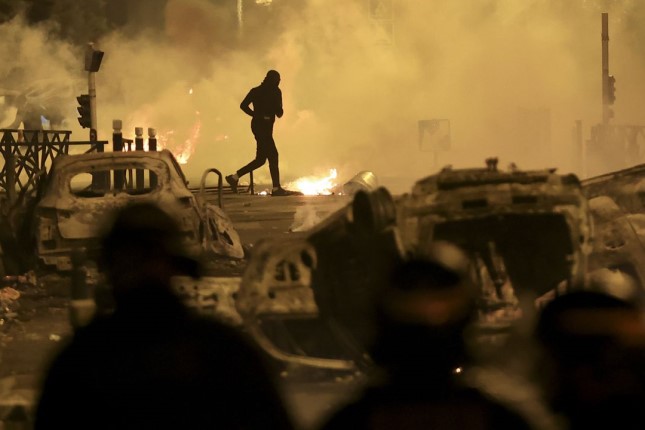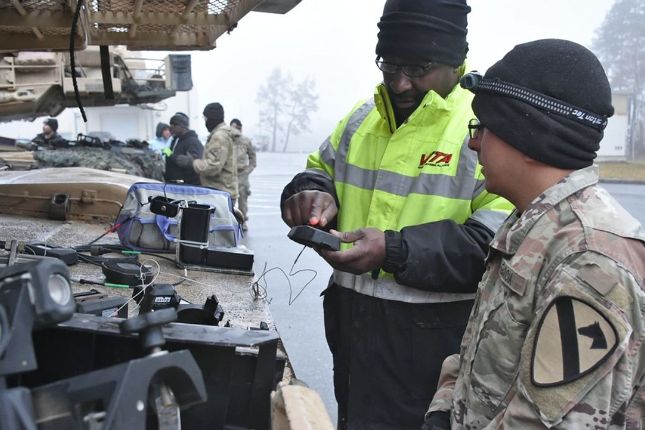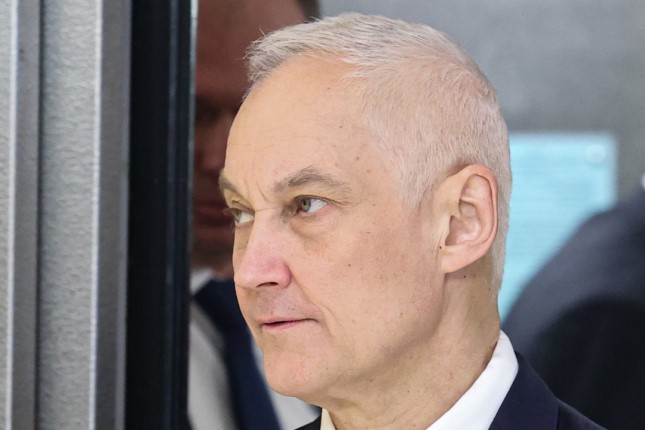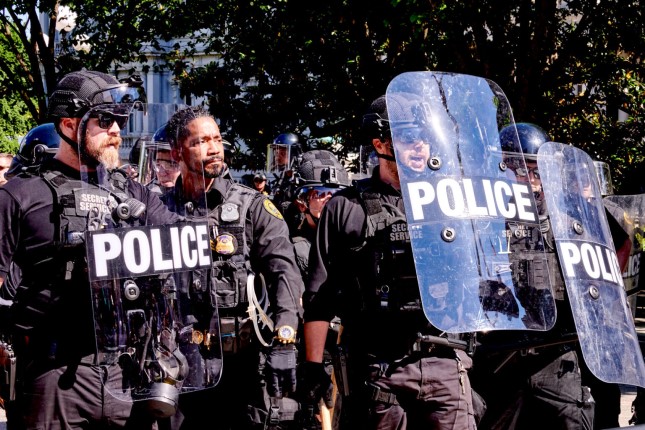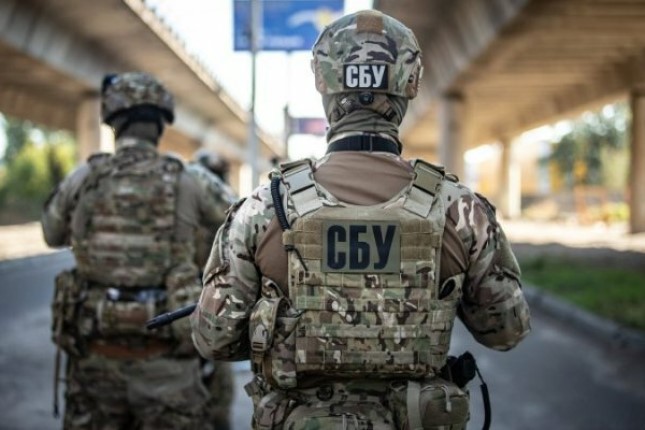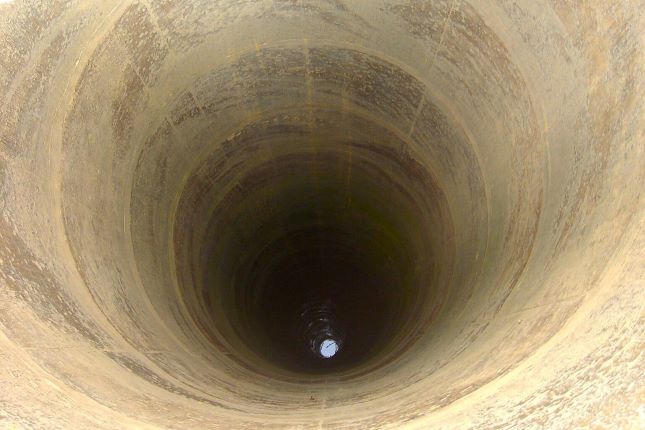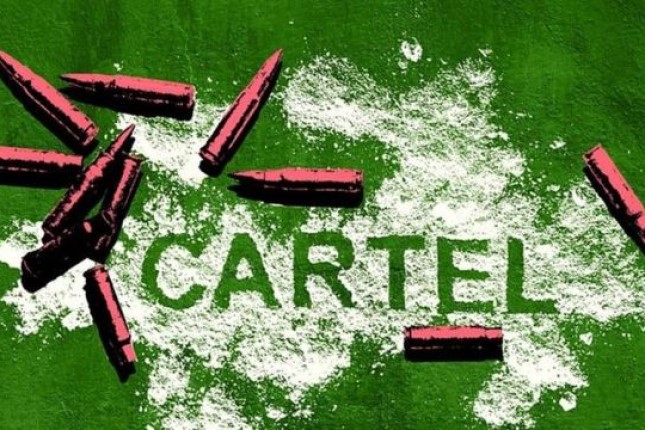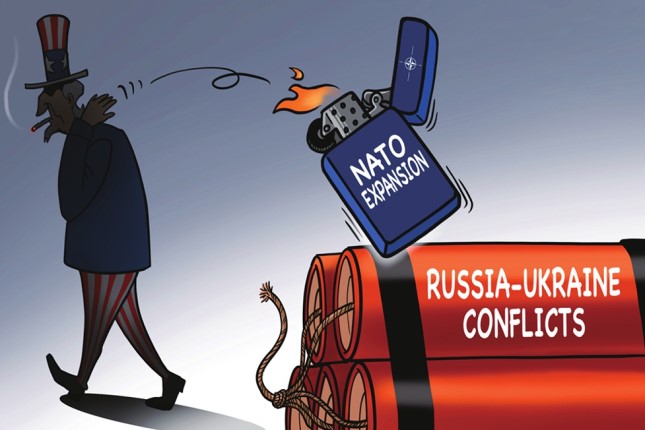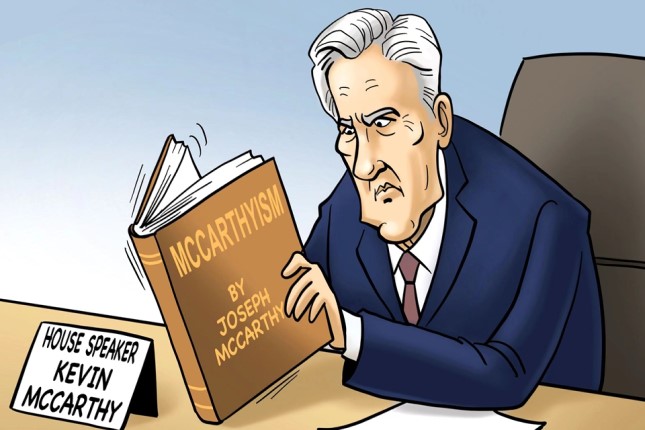The protests also spread internationally, as Belgian police deployed water cannon against youth protesting in solidarity with Nahel’s family in downtown Brussels.
Yesterday morning, President Emmanuel Macron held an emergency meeting of his cabinet, which decided against immediately declaring a state of emergency. But despite Interior Minister Gérald Darmanin’s decision to deploy 40,000 cops nationwide to try to crush the protests, the riots are still escalating out of the government’s control.
French police assaulted the silent march yesterday morning of over 6,000 people called by Nahel’s family in his home town of Nanterre, outside Paris. Before the march began, Darmanin announced the deployment of heavily armed Search and Intervention Brigade (BRI) teams in armored cars to the city. During the march, police fired tear gas at the mourners, who held signs calling for “Justice for Nahel” and “Never again.”
Clashes continued into the night in Nanterre, where protesters burned a bank and fired fireworks at riot police, who fired tear gas and rubber bullets at protesters.
Rioting and violent clashes with police hit dozens of cities, including Lille, Lyon, Marseille, Toulouse, Bordeaux, Montpellier, Strasbourg, Nice, Rennes, Rouen, Tours and the Paris area. In Lille, protesters burned several local municipal buildings and police stations, while smoke rose up in multiple locations across Toulouse and Marseille as protesters burned cars and clashed with police using rocks and fireworks launchers.
In Lyon, France’s second-largest metropolitan area, protesters burned buses and tramways in a number of suburbs and clashed with police in the city center.
Police stations burned in Montpellier, Reims and Orléans, while across France protesters also commandeered construction equipment to smash surveillance cameras or break into and loot stores in a number of cities. There were several unconfirmed reports of BRI units opening fire on protesters with live ammunition, including near the Old Port in Marseille. Police helicopter units were deployed in Marseille, across the northern Paris area, and beyond.
In the Paris area, clashes erupted again in the 12th and 14th districts in the south of the city, and rioters also smashed and looted several large shops near the Louvre museum. In the suburbs, protesters burned the city hall of Clichy-sous-Bois and police stations in several municipalities. They overturned and burned cars and violently clashed with police in several cities, including Saint-Denis to the north of Paris and Montargis to the south.
For a second time this year, since the mass protests by millions against Macron’s massively unpopular pension reforms, the Macron government has gone into a potentially mortal political crisis as it came into direct collision with the working class. Macron is still widely hated, having slashed pensions in the face of opposition from 75 percent of the French people, and is correctly seen as ruling against the people. The murder of Nahel only underscores that the cops upon whom he has relied to violently assault and crush protests function as judge, jury and executioner.
Videos circulating of the event completely refuted the false version of events given by the police just after the murder, claiming that they fired to defend themselves. In fact, the video showed that the cops stopped, threatened and then shot Nahel at point-blank range, when there was no threat to themselves. Yesterday morning, Nanterre prosecutor Pascal Prache formally confirmed that the state would be compelled to bring charges against the policeman who killed Nahel.
“Given the investigations and the elements we have observed, the prosecutor’s office considers that the legal conditions for using a weapon were not fulfilled,” Prache said. He then announced that an investigation would be launched on charges of voluntary homicide.
The legal team of Nahel’s family criticized Prache’s handling of the case, however, for covering up several important further accusations against the police. They wrote, “the prosecutor has hidden the possible complicity in voluntary homicide of the second policeman [present at the shooting] and the possible issuing of false public documents because of the initial lying declarations of the shooter.” On this basis, they called for the case to be moved to another jurisdiction to ensure the court case proceeds “in an objective, independent and impartial way.”
French domestic intelligence agencies prepared for the government a report on the mass riots caused by the killing of Nahel, which was then leaked to the press. The intelligence agencies claimed that last night would be “decisive” to see how far the protests would continue to grow and how serious a crisis Macron faces.
“Three days after the events, the excitement has still not died down,” their report noted, adding: “The pre-summer period which moreover features pleasant weather encourages youth to gather together in public areas, and rapidly commit various acts of violence. The persistence of these incidents is therefore to be expected across the entire country, with a probable extension, starting this evening, to neighborhoods that had until now remained calm.”
Indeed, this has led to a torrent of statements from right-wing and far-right politicians demanding the reimposition of a state of emergency, which was imposed after the 2015 terror attacks in Paris, allowing the state to suspend all basic democratic rights.
After the French cabinet’s crisis meeting yesterday morning, however, Prime Minister Élisabeth Borne told reporters her government would not immediately impose a state of emergency. “We are not in those circumstances,” she said, adding: “The justice system is advancing, it is doing its work. We must look for calm.”
In reality, by rejecting the immediate option of installing an overtly dictatorial emergency regime, the Macron government is not trying to obtain justice for Nahel. Given the explosive anger that exists against Macron, it aims to avoid provoking a further escalation of the political crisis which could completely escape its control. For now at least, it is trying to ride out the crisis and avoid triggering an even greater social explosion in the working class.
It is ordering its highly unpopular ministers to stay out of sight, so the cops can focus on attacking protesters, not protecting ministers. Official sources confirmed to BFM-TV that all “non-priority” movements by ministers were canceled, and all their movements organized around “the subject of the day,” that is, the crisis caused by Nahel’s murder. BFM-TV concluded that in this situation, using police to protect ministers going about other business would “uselessly mobilize the security forces.”
As they try to ride out the crisis, Macron’s ministers are relying on the political assistance of the pseudo-left party run by Jean-Luc Mélenchon, Unsubmissive France (LFI). LFI parliamentarian Mathilde Panot is currently running a political operation in the National Assembly to blame the murder on a part of a law that allows French police to rapidly shoot when they are faced with a car they can claim has refused to stop. She is proposing to rescind this measure.
“The LFI parliamentary group is submitting a bill to abrogate article 435-1 of the Cazeneuve law,” Panot announced yesterday on Twitter, referring to this measure, which she called a “license to kill.”
However reactionary the role played by this legislation, it is apparent that broader issues are raised by Nahel’s murder. The relentless resort to police violence to crush mass social opposition has been a constant of Macron’s presidency for over six years now, involving massive powers to detain, wiretap, and assault protesters exercising fundamental democratic rights to free speech, free movement, and to strike. This cannot be overturned simply by changing the rules of engagement governing when police are allowed to shoot motorists.
France’s police state, and at the center of it the arbitrary power of France’s executive presidency, must be dismantled in order to protect the basic social and democratic rights of the population. Like the struggle against Macron’s pension cuts, it requires the independent mobilization of the working class in a political struggle, independent of forces like LFI oriented to France’s corrupt trade union bureaucracies, that aims to bring down Macron and transfer power to the working class.
Photo: A demonstrator runs on the third night of protests sparked by the fatal police shooting of a 17-year-old driver in the Paris suburb of Nanterre, France, Friday, June 30, 2023 © AP Photo / Aurelien Morissard.
Source: World Socialist Web Site.
